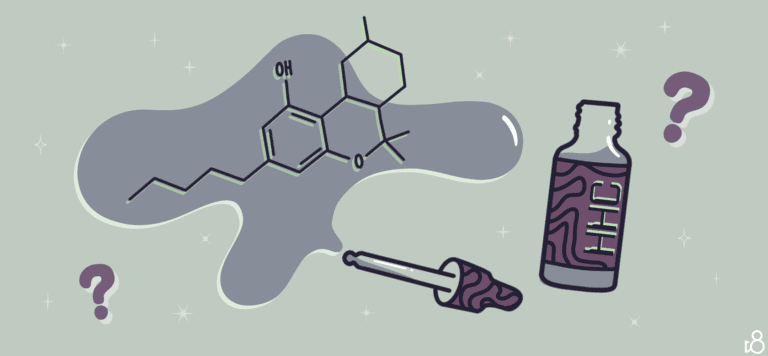Is Delta-11 THC Legal in Mississippi? Understanding State Cannabis Laws
Diving into the twisty world of U.S. cannabis laws? It’s like jumping on a wild ride, especially when you zoom in on the rules for each state, with Mississippi catching the eye as a unique example. Have you caught wind of Delta-11 THC? This newcomer in the vast cannabis clan hangs out close to the famous Delta-9 THC, a star in the psychoactive showcase, and its cousin Delta-8 THC. These siblings have been at the center of intense legal showdowns. Stick around, and I’ll clue you in on why this matters to you.
Table of contents
In Mississippi, cannabis laws have evolved, but it’s important to remain informed about current legislations to navigate the complexities surrounding the legalization status of substances like Delta-11 THC. While Delta-9 THC is widely known and often associated with marijuana’s psychoactive effects, Delta-11 THC and other cannabinoids, such as Delta-8, might not be as familiar to you. Each state has its stance on the legality of these cannabinoids, and in Mississippi, this may affect the availability and use of Delta-11 THC products.
For an up-to-date understanding of your legal rights and responsibilities regarding Delta-11 THC in Mississippi, it’s crucial to consult the most recent state laws. This will ensure you are in compliance with state regulations and can make informed decisions regarding the use of psychoactive substances within Mississippi’s jurisdiction.
Delta 11 THC Overview
Delta 11 THC, often confused with Delta 8 and Delta 9 THC, is a cannabinoid present in the cannabis plant. This compound is notable for its psychoactive properties, which contribute to the ‘high’ commonly associated with THC products.
Chemical Structure and Isomers
Delta 11 THC is characterized by its unique chemical structure, which includes a double bond in its molecular chain. This structure is similar to other THC isomers like Delta 8 and Delta 9 THC, which differ primarily in the placement of their double bonds. The placement of these bonds significantly affects the interaction of these compounds with your body’s endocannabinoid system.
- Delta 8 THC: Double bond on the 8th carbon
- Delta 9 THC: Double bond on the 9th carbon
- Delta 11 THC: Double bond on the 11th carbon
Psychoactive Properties
The psychoactive effects of Delta 11 THC can induce a sense of euphoria and a psychoactive high. The internal mechanisms operate similarly to those of other psychoactive cannabinoids by engaging with the CB1 and CB2 receptors in your nervous system.
- Psychoactive effect: Interaction with cannabinoid receptors leading to euphoria
- Euphoria: Elevated state of pleasure and well-being
Comparison with Other Cannabinoids
Comparing Delta 11 THC to other cannabinoids such as Delta 8 THC, Delta 9 THC, and CBD (cannabidiol) illuminates the differences in their psychoactive potency and legal status.
- Delta 8 THC & Delta 9 THC: Known for stronger psychoactive effects
- CBD: Non-psychoactive, primarily used for potential therapeutic benefits
- Delta 11 THC: Less studied, potential legal nuances depending on jurisdiction
While Delta 9 THC is widely recognized for its potency and is the primary psychoactive component in cannabis, Delta 8 THC offers a milder high. The legal landscape for these compounds varies, and certain areas have specific laws governing their status. In Mississippi Medical Cannabis Act, for example, legal distinctions may affect the availability and permissibility of Delta 11 THC products.
Legal Status of Delta 11 THC in Mississippi
Before diving into the specifics, it’s important for you to understand that the legal status of Delta-11 THC in Mississippi is nuanced, bearing the influence of both state and federal legislation.
Mississippi Drug Laws
Delta-11 THC, akin to other THC compounds, falls under the scrutiny of Mississippi drug laws. Your understanding of its legality should begin with the Mississippi Code 41-29-139, which categorizes various controlled substances and outlines the penalties for their possession and distribution. It’s essential to know that while Mississippi has taken steps to create a medical cannabis program, the legal landscape remains stringent on controlled substances that are outside the scope of this program.
Federal and State Legislation
The 2018 Farm Bill is pivotal in shaping the federal stance on hemp-derived compounds, making them federally legal as long as they contain less than 0.3% Delta-9 THC on a dry weight basis. However, the emergence of synthesized Delta-11 THC complicates its legality. Despite its derivation from legal hemp, Delta-11 THC straddles a gray area due to its intoxicating nature and is not expressly addressed in federal regulations. In alignment with federal law, Mississippi law enforcement agencies and drug test administrators closely monitor THC levels, as exceeding the 0.3% threshold would warrant a substance federally illegal.
To navigate the legal landscape in Mississippi, stay informed about both federal and state legislation, as it will impact the legal status of Delta-11 THC in the state.
Hemp-Derived THC Products
You’ll find that the conversation around hemp-derived THC products often centers on their legal status and availability. In the context of delta 11 and similar compounds derived from hemp, these are critical points to understand.
Legal Distinctions
When discussing hemp-derived THC products, it’s essential to distinguish between different types of THC. Delta 11, also known as 11-hydroxy-THC, is one of them and falls into a legal grey area. Federally, the Agricultural Improvement Act of 2018, commonly known as the Farm Bill, legalized hemp and hemp-derived compounds with less than 0.3% delta-9 THC on a dry weight basis. Delta 11 and other hemp-derived THCs like delta-8 THC, are not explicitly mentioned, which leads to varying interpretations of their legality.
Availability in Mississippi
In Mississippi, the legal landscape is still shaping up. Hemp-derived products are legally distinct from their marijuana counterparts due to their low delta-9 THC content. While submissions on the legality of delta 8 THC products imply it may be legal, the status of delta 11 products specifically is more complex. You should be aware that laws continue to evolve and they can differ at the state and federal levels, so staying informed on Mississippi’s specific regulations is crucial for both consumers and businesses dealing in THC products.
Medical and Recreational Use
In Mississippi, the legal landscape for delta-9-tetrahydrocannabinol (THC), the primary psychoactive component in marijuana, has seen significant changes. Your understanding of both the medical and recreational use of marijuana is essential as state laws evolve.
Benefits and Side Effects
Benefits: Medical marijuana, containing THC, is recognized for its potential therapeutic benefits. You may find it prescribed for pain relief, improving sleep quality, reducing symptoms of anxiety, and controlling nausea — all of which are supported by varying degrees of scientific evidence.
Side Effects: However, THC can also lead to adverse effects. While seeking relief, you might experience dry mouth, dizziness, or altered mental states. Being aware of these risks is crucial when considering medical marijuana for treatment.
Regulations on Medical Marijuana
Mississippi Law: As of the information available, Mississippi has legislated for the medical use of marijuana through the Mississippi Medical Cannabis Act. This act outlines specific conditions under which medical marijuana can be recommended.
Federal Regulations: While state laws may permit medical marijuana, remember that it remains illegal under federal law. This dichotomy may affect everything from the availability of medical marijuana to the way it’s prescribed and distributed. Always stay informed about both state and federal regulations to ensure compliance.
Consumer Considerations
When evaluating the legal status of Delta-11 THC in Mississippi, you should consider both the forms in which this cannabinoid can be consumed and how it may be detected by drug tests.
Product Forms and Uses
Delta-11 THC, a less common cannabinoid compared to its relatives like Delta-9 THC and Delta-8 THC, comes in several product forms. You might find it in edibles and vape pens, the former delivering the compound through digestive processing, and the latter through inhalation. For each product, the dosage unit will vary, and understanding this is crucial for a legal and safe consumption experience. Edibles often take longer to produce effects but tend to have a more prolonged impact, while vape pens offer a quicker onset of effects.
Detectability in Drug Tests
You should be aware that the use of products containing any form of THC, including Delta-11 THC, may result in a positive drug test. Drug tests typically screen for metabolites associated with THC, without distinguishing between different analogs of this compound. Therefore, if you’re subject to routine drug testing, the use of Delta-11 THC can affect test outcomes. Keep in mind that while Delta-11 THC’s legal status could be in a gray area, law enforcement may still enforce penalties if you’re caught with THC in your system, as standard drug tests do not differentiate between THC isomers or legal status.
National Legality Landscape
When considering the legality of delta-11 and similar compounds, you must acknowledge the complex interplay between federal and state laws. Under federal law, the 2018 Farm Bill legalized hemp-derived cannabinoids, but the DEA’s stance on synthetically derived tetrahydrocannabinols could complicate matters.
Regarding state laws, the landscape varies significantly:
- Permissive States: Some states, like California and Colorado, have established cannabis-friendly legal frameworks, potentially including delta-11.
- Restrictive States: Conversely, states such as Idaho and Kansas maintain stringent controls on cannabinoids regardless of their origin.
Here’s a snapshot of states where delta-11 legality might be more nuanced due to notable cannabis laws:
| State | Cannabis Legality Status |
| Alaska | Legal for recreational use |
| Arizona | Legal for recreational use |
| Arkansas | Legal for medical use |
| New York | Legal for recreational use |
| Vermont | Legal for recreational use |
| Washington | Legal for recreational use |
In contrast, states like:
- Mississippi have historically had more conservative approaches, reflected in their legal landscape. For insights on Mississippi’s specific stance, a deeper understanding of local laws is required.
You should also consider the enforcement agencies’ perspectives:
- DEA: Tasked with enforcing federal drug laws, which can be stringent.
- FDA: Regulates products for safety and efficacy, and their classification may influence legal status.
The legal landscape remains a patchwork of regulations that can change. Keep up-to-date with your state’s legislation and consult legal professionals for guidance on delta-11 and other cannabinoid legality in your area.
Frequently Asked Questions
In this section, you’ll find clear answers regarding the legal status of Delta-11 THC in Mississippi.
What is the current legal status of delta-11 THC in Mississippi?
The legality of delta-11 THC in Mississippi is unclear due to evolving state laws and the lack of specific mention of delta-11 THC in legal texts. As regulations can change, you should check the most current state laws for the latest information.
How does delta-11 THC differ from other cannabinoids legally in Mississippi?
Legally, delta-11 THC and other cannabinoids may be treated differently depending on their source and THC content. Federally legal hemp-derived compounds, like CBD, are permitted under state law, while substances with higher THC levels may fall under different legal classifications.
Are there any restrictions on purchasing delta-11 THC products in Mississippi?
Restrictions on purchasing delta-11 THC products would depend on their legal status. If delta-11 is not legally recognized or is controlled, there may be limitations on purchase and sale within Mississippi.
Can delta-11 THC be legally possessed and used in Mississippi?
The possession and use of delta-11 THC hinge on its current legal classification in Mississippi. Without explicit legal protection, possessing such compounds could potentially lead to legal repercussions.
What are the consequences of violating delta-11 THC regulations in Mississippi?
Violating any drug regulations in Mississippi, including those pertaining to delta-11 THC, could result in legal penalties such as fines or prosecution. Specific consequences would be determined by the nature of the violation and state law.
Has there been recent legislation affecting delta-11 THC legality in Mississippi?
There has not been specific recent legislation targeting delta-11 THC in Mississippi. However, general cannabis and hemp regulations may indirectly affect the legal standing of delta-11 and related substances. It’s essential to stay informed about current laws.







